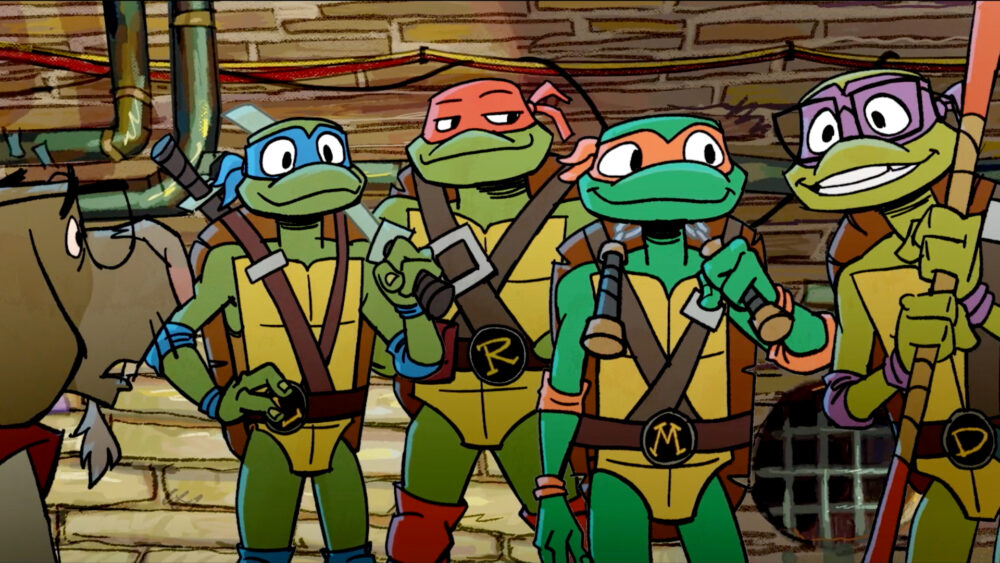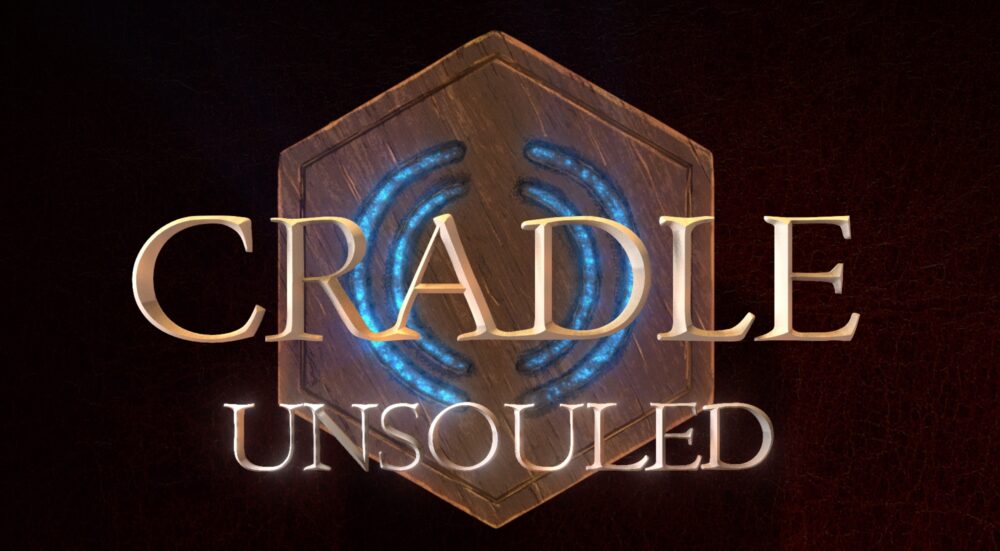Spoilers endure for thousands of years!
As the Covid pandemic rages on with no end in apparent sight, the thought of romance and spending time together with the vestiges of humanity makes Moxie’s scrubbed skin crawl, so instead we’re diving into a story of Korean monsters, mythology, murder, and redemption over a thousand years in the making!
Most people are familiar with the semi-standard tropes of monsters known more or less around the world – vampires, shape-shifters, and the like – but with all the popularity South Korean television has garnered in the last decade, the rich monster mythology Korea has to offer has yet to be explored – til now!
As the show readily explains more than once, a Bulgasal is a vampire-like being, forced to feed on human blood and cursed with immortality, for a monster with no soul simply cannot reincarnate. Our primary Bulgasal is Dan Hwal (Lee Jin-wook), though it does take him some time to give his name, for when our story begins in the modern era, Hwal is effectively running around as the monster who kills other reincarnated monsters, nameless. Hwal doesn’t need to eat, not people food anyway, he gets regularly scheduled deliveries of beef blood from adorable Ajumma Lee Hye-suk (Park Myung-shin) whom he saved from a different monster when she was a girl, Hwal barely sleeps or even rests, he’s simply waiting. What’s he waiting for, you ask? For a woman, for the woman, specifically the reincarnation of the woman who killed Hwal’s family and made him into Bulgasal, some 600 years ago. Yes, Bulgasal is big into themes like reincarnation, fate, and destiny.
Then there’s the woman Hwal’s been waiting forever for, Min Sang-woon (Kwon Nara), and by extension, her sister Min Si-ho (Gong Seung-yeon). Her childhood was forever shattered when her parents were slain by, what else, a monster of the Bulgasal variety, yes, but why? Because some six hundred years ago, when Sang-woon was a terror herself apparently, she purportedly slew Hwal’s adoptive father Dan Geuk (Jung Jin-young), his wife Dan Sol and their poor blind son, and to add insult to injury, stole Hwal’s soul and turned him into Bulgasal. Inevitably here in the modern world, Hwal’s adoptive father, wife, and even son have all reincarnated and are about to get themselves involved in the hunt for the real Bulgasal boogeyman! Did I happen to mention that Bulgasal is huge into, like, inevitable destiny?
So if it wasn’t an appalling Sang-woon from a previous life or any of these other reincarnated humans with monstrous ancestry that Hwal happens to be interim killing while he waits for his intended to reincarnate so he can kill her yet again, who’s the really-real villain of this story? Rich and powerful and effectively immortal, his name is Ok Eul-tae (Lee Joon), he’s been associated with Bulgasal and Hwal in particular for a long time now, and has been holding a grudge against Sang-woon for pretty much this entire time. The why of his grudge against both Sang-woon and Hwal, the gaping void hole in his chest, the miserly way he hoards secrets only to deploy them like a bomb for max effect decades later, all conspire to demonstrate how unstable and volatile Ok Eul-tae really is. Like the brutal and atrocious consequences of a disastrous decision made a very long time ago, Ok Eul-tae glories in bringing maximum destruction to those he considers secondary roles in Hwal’s life, which is pretty much everyone, but especially that damnable woman that keeps reincarnating and getting in the way of him and Hwal going off into the darkness together forever! (Sure sounds an awful lot like a previously scorned lover to me!)
Sure, there’s plenty about the fate and destiny of love, even hundreds of years and lives lived later, but what makes Bulgasal Immortal Souls different is showing the consequences of the hurt and pain we cause those we claim to love around us, sometimes even decades or lifetimes later. Some people hold grudges tighter and more precious than Faberge eggs, especially against those they claim to love, and the ripples that spread out from that have a tendency to affect those only innocently associated on the periphery, too. Hwal finds himself shocked and horrified to see the reincarnated versions of his loved ones be hurt and even die as a direct result of his actions, and we feel every single second of his immortal suffering with him. (In case it wasn’t obvious, Bulgasal is also big-big-big into suffering – physical pain, emotional torture, mental agony, seeing our loved ones tormented in our own place, etc.)
The show also emphasizes the thought that true families are made, people gather ‘round each-other and choose to be together, to call each other ‘brother’ or ‘auntie’ or ‘Ajumma’, to chide each other over not eating, to share in heartbreaks and triumphs with people you chose to love, not because destiny said you shared blood ancestry and therefore have to care about them. In particular the performance of modern-day Detective Kwon and previous-life General Dan Geuk, the man who rescued a cursed, nameless boy from the machinations of a shaman and the idiocy of villagers and helps Hwal run around investigating Ok Eul-tae in the modern world, and the love and care of Ajumma Lee Hye-suk, who was that same shaman who cursed Hwal in a previous life and could be accused of starting this entire cycle of suffering and pain around him, in this life she became the Mother figure of the strange little family Hwal gathered ‘round himself.
Bulgasal Immortal Souls breaks the chains of destiny, and proves that real love – familial, platonic, romantic, whatever – is something you fight for, with your own hands and heart and mind! Catch the blood-drenched struggle against the madness of fate on Netflix now!

Events
Paramount+ Reveals Official Main Title Sequence for the Upcoming Series TALES OF THE TEENAGE MUTANT NINJA TURTLES

During the TALES OF THE TEENAGE MUTANT NINJA TURTLES panel earlier today at San Diego Comic Con, Paramount+ revealed the official main title sequence for the series. The sequence is composed by EMMY® nominee, Matt Mahaffey, known for his work on Sanjay and Craig, Rise of the Teenage Mutant Ninja Turtles, and Rise of the Teenage Mutant Ninja Turtles: The Movie and much more.
From the studios of the Mutant Mayhem film, the all-new Paramount+ original series TALES OF THE TEENAGE MUTANT NINJA TURTLES explores the adventures of everyone’s favorite pizza-loving heroes as they emerge from the sewers onto the streets of NYC. Leo, Raph, Donnie and Mikey are faced with new threats and team up with old allies to survive both teenage life and villains lurking in the shadows of the Big Apple. The series is produced by Nickelodeon Animation and Point Grey Pictures.
TALES OF THE TEENAGE MUTANT NINJA TURTLES is executive produced by Chris Yost (The Mandalorian, Thor: Ragnarok) and Alan Wan (Blue Eye Samurai, Rise of the Teenage Mutant Ninja Turtles, Teenage Mutant Ninja Turtles [2012 Series]). Production is overseen for Nickelodeon by Claudia Spinelli, Senior Vice President, TV Series Animation, Nickelodeon, and Nikki Price, Director of Development and Executive in Charge of Production.
In addition to the upcoming new series, stream all things Turtles on Paramount+.
Events
Comic-Con 2024: Those About to Die Activation
Events
DISNEY+ CASTS DANIEL DIEMER AS FAN-FAVORITE ‘TYSON’IN SEASON TWO OF “PERCY JACKSON AND THE OLYMPIANS”

in Hall H at San Diego Comic-Con, Rick Riordan and Disney+ revealed that Daniel Diemer (“Under the Bridge”) will star as fan-favorite cyclops “Tyson” in the epic adventure series “Percy Jackson and the Olympians.” Diemer joins Walker Scobell (Percy Jackson), Leah Sava Jeffries (Annabeth Chase) and Aryan Simhadri (Grover Underwood) as a series regular. The Disney+ Original series from Disney Branded Television and 20th Television will start filming its second season next week in Vancouver.
Season two of “Percy Jackson and the Olympians” is based on the second installment of Disney Hyperion’s best-selling book series titled “The Sea of Monsters” by award-winning author Rick Riordan. In the new season, Percy Jackson returns to Camp Half-Blood one year later to find his world turned upside down. His friendship with Annabeth is changing, he learns he has a cyclops for a brother, Grover has gone missing, and camp is under siege from the forces of Kronos. Percy’s journey to set things right will take him off the map and into the deadly Sea of Monsters, where a secret fate awaits the son of Poseidon.
Diemer stars as Tyson – a young Cyclops who grew up all alone on the streets, and finds it difficult to survive in the human world. Shy and awkward, with a heart almost as big as he is, Tyson soon discovers that Poseidon is his father, which means Percy Jackson is his half-brother… and that Tyson may have finally found a home.
Diemer recently starred in the Hulu limited series “Under the Bridge” based off the critically acclaimed book of the same name and a tragic true story of a missing teen girl in Vancouver in 1997. He will next star in the indie “Thug” opposite Liam Neeson and Ron Perlman for director Hans Petter Moland. Daniel was recently seen as the lead in the indie “Supercell” opposite Alec Baldwin and Skeet Ulrich and the lead in the film “Little Brother” opposite Phil Ettinger and JK Simmons. Daniel can also be seen in the Netflix series “The Midnight Club” and recently starred as the male lead in the breakout hit Netflix feature “The Half Of It” from producer Anthony Bregman and director Alice Wu. He is a graduate of Victoria Academy of Dramatic Arts in Vancouver.
Created by Rick Riordan and Jonathan E. Steinberg, season two of “Percy Jackson and the Olympians” is executive produced by Steinberg and Dan Shotz alongside Rick Riordan, Rebecca Riordan, Craig Silverstein, The Gotham Group’s Ellen Goldsmith-Vein, Bert Salke, The Gotham Group’s Jeremy Bell and D.J. Goldberg, James Bobin, Jim Rowe, Albert Kim, Jason Ensler and Sarah Watson.
The first season of “Percy Jackson and the Olympians” is available on Disney+
-

 Interviews1 day ago
Interviews1 day agoInterview With Heroes & Villains Creative Director Doug Johnson
-

 Streaming1 day ago
Streaming1 day agoApple TV+ announces season two for delightful kids and family series “Camp Snoopy
-

 Events1 day ago
Events1 day agoThat’s My E Coverage Of The Adult Swim’s Pirate Parrrty
-

 Events13 hours ago
Events13 hours agoParamount+ Reveals Official Main Title Sequence for the Upcoming Series TALES OF THE TEENAGE MUTANT NINJA TURTLES
-

 Events16 hours ago
Events16 hours agoDISNEY+ CASTS DANIEL DIEMER AS FAN-FAVORITE ‘TYSON’IN SEASON TWO OF “PERCY JACKSON AND THE OLYMPIANS”
-

 Interviews17 hours ago
Interviews17 hours agoComic-Con 2024: Will Wight’s Cradle
-

 Events16 hours ago
Events16 hours agoComic-Con 2024: Those About to Die Activation



